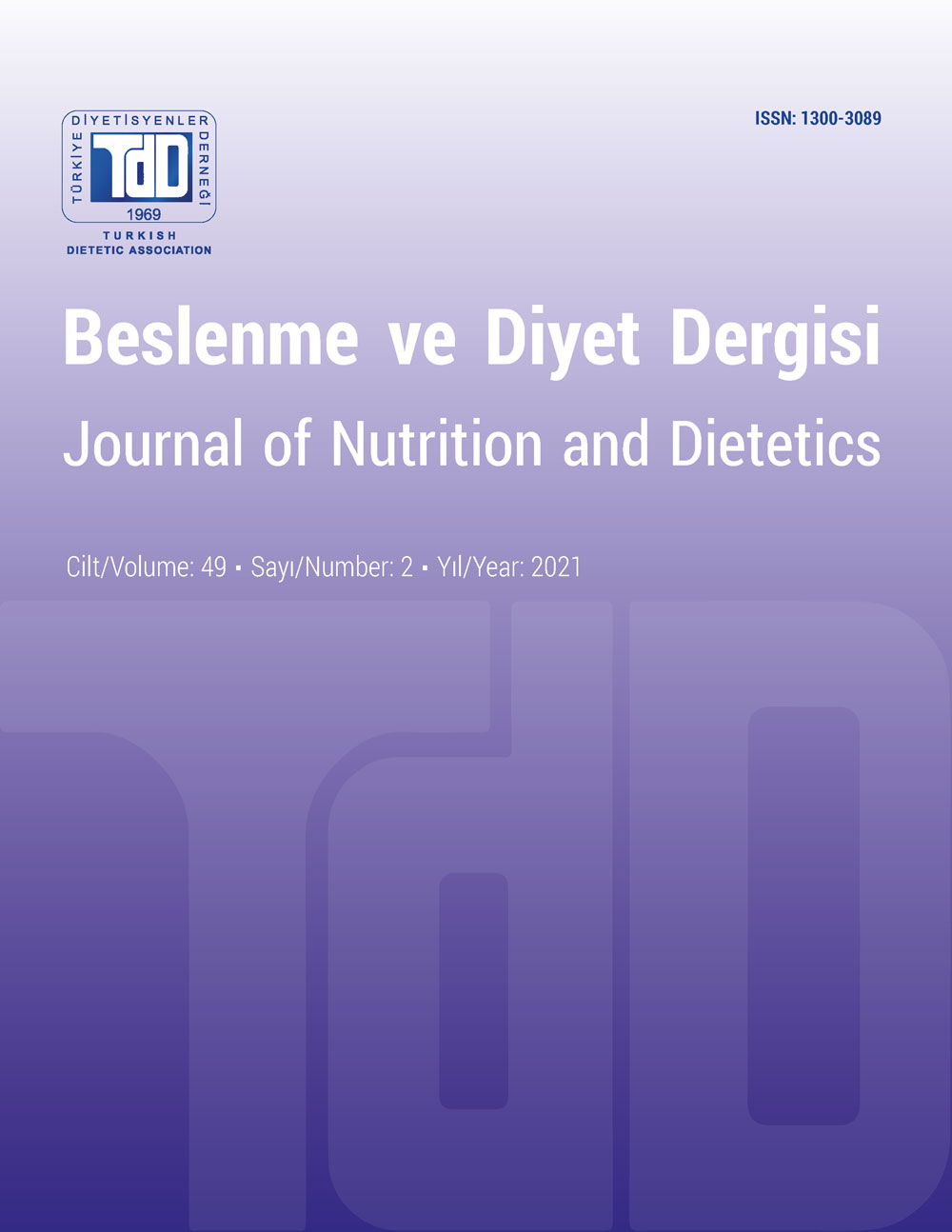Reflection of the Relationship Between Hedonic Hunger and Eating Behavior on Different Body Masses
DOI:
https://doi.org/10.33076/2021.BDD.1465Keywords:
Hedonic hunger, eating behavior, obesity, body mass indexAbstract
Aim: In this study, it was aimed to evaluate the hedonic hunger status and eating behavior of adults with different body mass index (BMI) values.
Subjects and Method: Adults (n: 1276) aged between 19-64 years were included in the study. The study questionnaire was delivered to the participants online (social media or e-mail). Some demographic characteristics, dietary habits, body weight and height were questioned with online form. Food Power Scale-Tr (PFS-Tr) was used to evaluate hedonic hunger and Dutch Eating Behavior Questionnaire (DEBQ) was used to evaluate eating behavior. Individuals were divided into three groups according to BMI classification.
Results: Out of total, 57.9% of the individuals had normal weight, 31.2% of them were in the overweight and 10.9% were in the obese classification. At the end of the study, it was found that total PFS-Tr score was higher in obese group than normal group (p<0.05). The scores of restrictive eating and emotional eating from subgroup of the DEBQ were found to be higher in overweight and obese individuals than those with normal body weight (p<0.001). A significant positive correlation was found between BMI and food present, food availability, PFS-Tr total score, restrictive eating and emotional eating subgroups (p<0.05). It was found that total and sub-scores of PFS-Tr used in the evaluation of hedonic hunger had a positive relationship with emotional eating and external eating, which are the sub-scales of the DEBQ (p<0.001).
Conclusion: According to the results, it was observed that there was relationship between hedonic hunger and eating behavior disorders, and obese individuals were more at risk in terms of hedonic hunger and eating behavior disorders than individuals with normal body weight.

